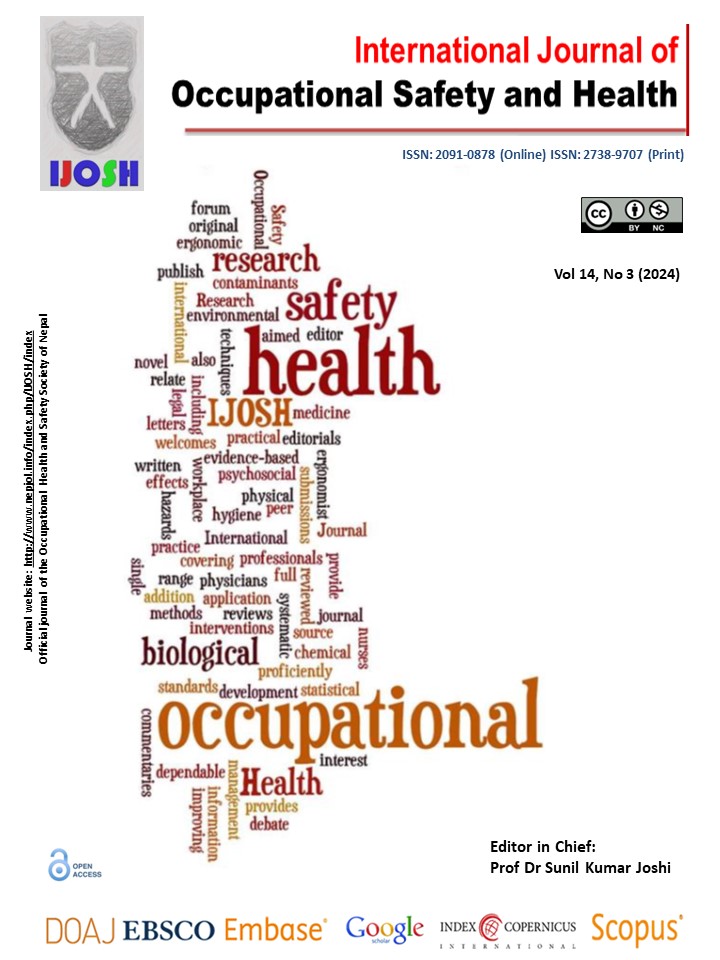Musculoskeletal symptom survey and ergonomic assessments associated with maintenance tasks in the Indonesian railway industry
DOI:
https://doi.org/10.3126/ijosh.v14i3.63073Keywords:
ergonomics assessments, maintenance tasks, musculoskeletal symptoms survey, trainAbstract
Introduction: Suboptimal work design of maintenance tasks in railway industries often leads to adverse health effects for workers. This study aimed to determine the ergonomic risk levels and assess the extent of musculoskeletal symptoms associated with train maintenance tasks in the Indonesian railway industry.
Methods: The study involved 34 workers responsible for the daily handling of locomotive components within a railway maintenance workshop in Indonesia. A musculoskeletal symptom survey was conducted using the Indonesian version of the Nordic Musculoskeletal Questionnaire to determine the prevalence and severity of such adverse health effects. Ergonomics assessments were conducted using the Rapid Entire Body Assessment (REBA) to evaluate the risk level and contributing risk factors associated with the investigated maintained tasks.
Results: Participants predominantly experienced musculoskeletal symptoms in the lower back (100%), followed by shoulders (91%), and knees (88%), while the highest severity was also observed in these regions. The ergonomics assessments revealed that over 50% of the maintenance tasks were categorized as either high or very high risk, with higher REBA section scores noted in the neck, leg, and trunk compared to those of the lower arm, wrist, and upper arm.
Conclusion: Workers performing train maintenance tasks experience a high prevalence and moderate severity of musculoskeletal symptoms. Additionally, most maintenance tasks performed were considered risky. Prompt interventions are necessary to address these findings.
Downloads
Downloads
Published
How to Cite
Issue
Section
License
Copyright (c) 2024 The Author(s)

This work is licensed under a Creative Commons Attribution-NonCommercial 4.0 International License.
This license enables reusers to distribute, remix, adapt, and build upon the material in any medium or format for noncommercial purposes only, and only so long as attribution is given to the creator.





